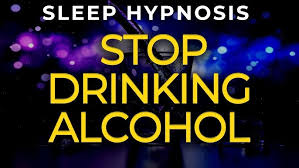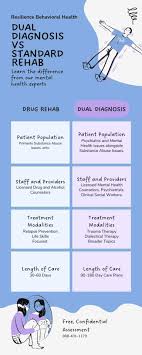Hypnosis for Drinking: A Powerful Tool for Overcoming Alcohol Addiction
Alcohol addiction can have a devastating impact on individuals and their loved ones. For those struggling with alcohol dependency, finding effective treatment options is crucial for recovery. One approach that has shown promise in helping individuals overcome alcohol addiction is hypnotherapy.
Hypnosis, as a therapeutic technique, involves inducing a relaxed state of heightened suggestibility in the patient to promote positive changes in behavior and thought patterns. When used specifically for addressing drinking problems, hypnotherapy can target the root causes of alcohol addiction and help individuals break free from destructive drinking habits.
One of the key benefits of hypnosis for drinking is its ability to access the subconscious mind, where deeply ingrained beliefs and behaviors related to alcohol consumption reside. By working with a skilled hypnotherapist, individuals can uncover and address these underlying issues, such as past traumas, emotional triggers, or negative self-perceptions that contribute to their drinking habits.
During hypnotherapy sessions focused on drinking, patients may receive suggestions and imagery aimed at reducing cravings, increasing motivation to quit or cut back on alcohol consumption, and building self-control and resilience against relapse triggers. Through repeated sessions and reinforcement of positive suggestions, individuals can rewire their subconscious patterns surrounding alcohol use.
It’s important to note that hypnosis for drinking is not a standalone treatment but is often used as part of a comprehensive approach to alcohol addiction recovery. Combining hypnotherapy with counseling, support groups, lifestyle changes, and other evidence-based interventions can enhance the effectiveness of treatment and support long-term sobriety.
If you or someone you know is struggling with alcohol addiction and seeking alternative avenues for recovery, consider exploring the potential benefits of hypnosis for drinking. Consult with a qualified hypnotherapist experienced in treating substance abuse issues to determine if this approach aligns with your needs and goals.
5 Benefits of Using Hypnosis to Combat Alcohol Addiction
- Addresses underlying emotional issues contributing to alcohol addiction.
- Helps reduce cravings and urges to drink through subconscious reprogramming.
- Can increase motivation and commitment to sobriety.
- Offers a non-invasive and drug-free approach to alcohol addiction treatment.
- Provides a complementary therapy that can enhance the effectiveness of traditional interventions.
7 Drawbacks of Using Hypnosis to Address Alcohol Addiction
- Effectiveness may vary from person to person.
- Not a standalone treatment for alcohol addiction.
- Requires multiple sessions for potential benefits.
- Cost of hypnotherapy sessions can be prohibitive for some individuals.
- Reliance on hypnosis alone may overlook underlying psychological issues contributing to alcohol addiction.
- Limited scientific evidence on the long-term efficacy of hypnosis for treating alcohol dependency.
- Success of hypnotherapy may depend on the skill and experience of the hypnotherapist.
Addresses underlying emotional issues contributing to alcohol addiction.
Hypnosis for drinking offers a valuable benefit by addressing underlying emotional issues that contribute to alcohol addiction. Through the power of hypnotherapy, individuals can delve into their subconscious minds to uncover and work through deep-seated emotional triggers, traumas, and negative beliefs that fuel their drinking habits. By resolving these underlying emotional issues, hypnosis helps individuals break free from the cycle of alcohol addiction and develop healthier coping mechanisms, paving the way for lasting sobriety and emotional well-being.
Helps reduce cravings and urges to drink through subconscious reprogramming.
Hypnosis for drinking offers a valuable benefit by helping individuals reduce cravings and urges to drink through subconscious reprogramming. By accessing the subconscious mind, hypnotherapy can target the root causes of alcohol cravings and reshape deeply ingrained patterns associated with drinking behavior. Through positive suggestions and imagery, individuals undergoing hypnosis can reprogram their subconscious beliefs and responses, leading to a reduction in the intensity and frequency of cravings for alcohol. This subconscious reprogramming empowers individuals to better manage their urges to drink and supports their journey towards sobriety and healthier habits.
Can increase motivation and commitment to sobriety.
Hypnosis for drinking can be a powerful tool in increasing motivation and commitment to sobriety. By accessing the subconscious mind and addressing underlying issues that contribute to alcohol addiction, hypnotherapy can help individuals strengthen their resolve to overcome their drinking habits. Through targeted suggestions and imagery during hypnotherapy sessions, individuals can cultivate a deep sense of determination and dedication to maintaining sobriety, making it easier for them to resist cravings and stay on track with their recovery journey. This increased motivation and commitment fostered by hypnosis can significantly enhance the likelihood of long-term success in achieving and sustaining a sober lifestyle.
Offers a non-invasive and drug-free approach to alcohol addiction treatment.
Hypnosis for drinking offers a non-invasive and drug-free approach to alcohol addiction treatment, making it an appealing option for individuals seeking alternative methods of recovery. By tapping into the power of the subconscious mind and addressing underlying issues without the need for medication or invasive procedures, hypnotherapy provides a natural and holistic way to combat alcohol dependency. This approach focuses on empowering individuals to make positive changes in their behavior and thought patterns, promoting long-term sobriety without the potential side effects associated with pharmaceutical interventions.
Provides a complementary therapy that can enhance the effectiveness of traditional interventions.
Hypnosis for drinking offers a valuable complementary therapy that can significantly enhance the effectiveness of traditional interventions for alcohol addiction. By targeting the subconscious mind and addressing deep-seated beliefs and behaviors related to drinking, hypnotherapy can work synergistically with counseling, support groups, and other evidence-based treatments to provide a more holistic approach to recovery. This integration of hypnosis into a comprehensive treatment plan can help individuals achieve lasting results by reinforcing positive changes and strengthening their motivation and self-control in overcoming alcohol dependency.
Effectiveness may vary from person to person.
When considering hypnosis for drinking, it’s important to acknowledge that its effectiveness may vary from person to person. While some individuals may experience significant improvements in their drinking habits and addiction through hypnotherapy, others may not respond as positively to the treatment. Factors such as individual susceptibility to hypnosis, underlying causes of alcohol addiction, and commitment to the therapeutic process can influence the outcomes of hypnosis for drinking. It’s essential for individuals considering this approach to have realistic expectations and be open to exploring alternative or complementary treatments if needed.
Not a standalone treatment for alcohol addiction.
It is important to recognize that hypnosis for drinking is not a standalone treatment for alcohol addiction. While hypnotherapy can be a valuable tool in addressing the underlying factors contributing to alcohol dependency, it is typically most effective when integrated into a comprehensive treatment plan. Alcohol addiction is a complex issue that often requires a multifaceted approach, including counseling, support groups, medical interventions, and lifestyle changes. Hypnosis for drinking should be viewed as a complementary therapy that works best in conjunction with other evidence-based treatments to provide holistic support for individuals seeking recovery from alcohol addiction.
Requires multiple sessions for potential benefits.
One notable con of using hypnosis for addressing drinking issues is that it often requires multiple sessions to achieve significant and lasting benefits. Unlike quick-fix solutions, hypnotherapy typically involves a series of sessions to work through deep-seated beliefs and behavioral patterns related to alcohol consumption. This can be time-consuming and may require a commitment to regular appointments, which may not be feasible for everyone due to scheduling constraints or financial considerations. Additionally, the effectiveness of hypnosis for drinking may vary from person to person, meaning that some individuals may require more sessions than others to experience the desired results.
Cost of hypnotherapy sessions can be prohibitive for some individuals.
The cost of hypnotherapy sessions can present a significant barrier for individuals seeking treatment for alcohol addiction. While hypnosis has shown promise in addressing drinking problems, the expense associated with regular sessions with a qualified hypnotherapist may be prohibitive for some. This financial challenge can limit access to this potentially beneficial treatment option, especially for those with limited resources or inadequate insurance coverage. As a result, individuals facing alcohol dependency may struggle to afford the necessary support and guidance offered through hypnotherapy, highlighting an important con of this approach in addressing drinking issues.
Reliance on hypnosis alone may overlook underlying psychological issues contributing to alcohol addiction.
Reliance on hypnosis alone for addressing drinking problems may overlook underlying psychological issues that play a significant role in alcohol addiction. While hypnotherapy can be a valuable tool in modifying behaviors and beliefs related to alcohol consumption, it is essential to recognize that deeper psychological issues, such as trauma, anxiety, depression, or unresolved emotional conflicts, may also contribute to addictive behaviors. Without addressing these underlying psychological factors through comprehensive therapy and counseling, the effectiveness of hypnosis for long-term recovery from alcohol addiction may be limited. It is crucial to consider a holistic approach that integrates hypnotherapy with other therapeutic modalities to ensure a more thorough and sustainable treatment outcome.
Limited scientific evidence on the long-term efficacy of hypnosis for treating alcohol dependency.
Limited scientific evidence exists on the long-term efficacy of hypnosis for treating alcohol dependency. While some studies suggest that hypnotherapy can be a valuable tool in addressing drinking problems, the lack of extensive research on its sustained effectiveness over time poses a conundrum for individuals seeking reliable and proven treatment options for alcohol addiction. Without robust data supporting the enduring benefits of hypnosis in long-term recovery from alcohol dependency, it is essential for individuals to approach this therapeutic approach with caution and consider integrating it with other evidence-based interventions for comprehensive and sustainable treatment outcomes.
Success of hypnotherapy may depend on the skill and experience of the hypnotherapist.
The success of hypnotherapy for addressing drinking issues may be contingent upon the skill and experience of the hypnotherapist. A proficient and seasoned hypnotherapist possesses the expertise to tailor hypnotic techniques effectively to each individual’s needs, ensuring that the therapy is personalized and impactful. Inexperienced practitioners may struggle to navigate the complexities of alcohol addiction treatment through hypnosis, potentially limiting the effectiveness of the intervention. Therefore, it is crucial for individuals seeking hypnotherapy for drinking problems to research and select a qualified hypnotherapist with a proven track record in addressing substance abuse issues to optimize their chances of achieving positive outcomes.


